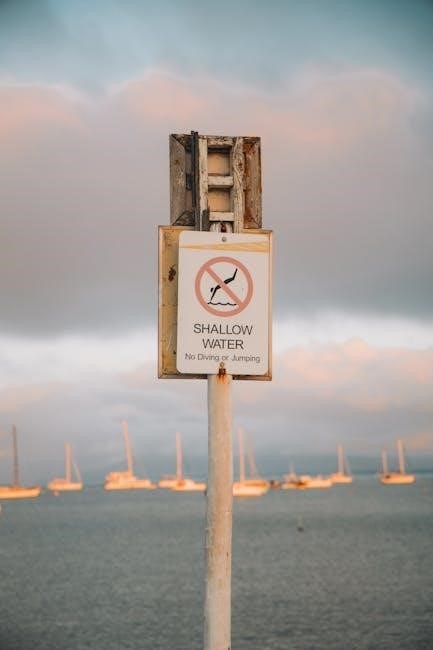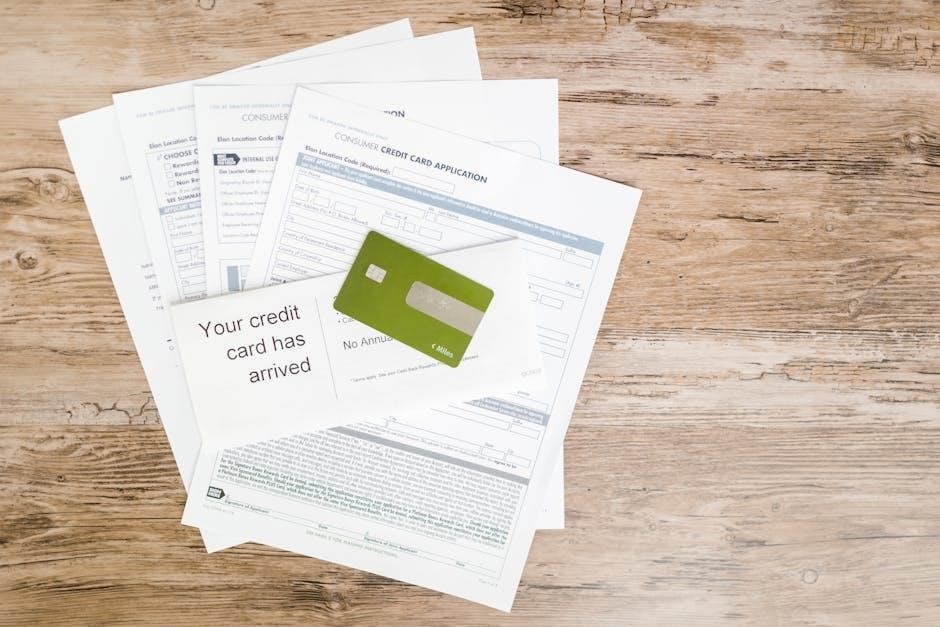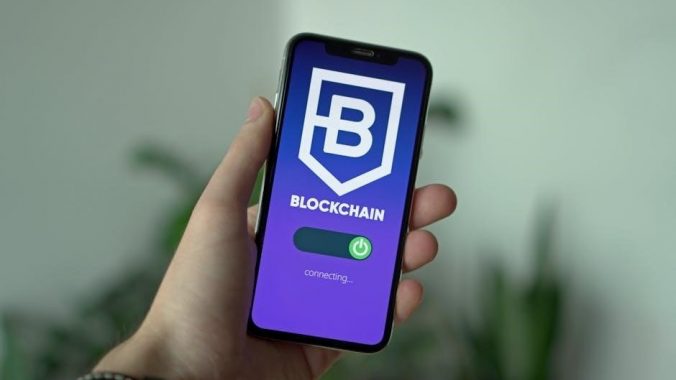A security licence in Victoria is mandatory under the Private Security Act 2004 for individuals and businesses engaged in private security services. Issued by Victoria Police, it ensures professionalism, accountability, and integrity in the industry. The licence confirms completion of required training, background checks, and suitability assessments. It is essential for roles like security guards, crowd controllers, and private investigators. Applications can be submitted through the Victoria Police eServices portal, streamlining the process for applicants.
1.1 Overview of the Licensing Process
The licensing process for a security licence in Victoria is governed by the Private Security Act 2004 and managed by the Licensing and Regulation Division (LRD) of Victoria Police. Applicants must meet eligibility criteria, submit required documents, and complete an online application via the Victoria Police eServices portal. The process involves background checks, verification of training, and suitability assessments; Once the application is submitted, it is reviewed, and fees are processed. The licensing process ensures that individuals and businesses in the security industry operate ethically and professionally, maintaining public safety and trust. It is a critical step to legally perform private security duties in Victoria.
1.2 Importance of a Security Licence
A security licence in Victoria is crucial for ensuring accountability and professionalism in the private security industry. It verifies that individuals have undergone necessary training, background checks, and suitability assessments. The licence protects both service providers and the public by enforcing high standards of conduct and integrity. Without a valid licence, individuals and businesses cannot legally perform private security duties, risking penalties and reputational damage. The licence also builds public trust in security services, ensuring that practitioners are qualified and reliable. It is a legal requirement under the Private Security Act 2004, reinforcing the importance of compliance and ethical practices within the industry.

Eligibility Criteria for a Security Licence
Eligibility for a security licence in Victoria requires applicants to meet specific criteria, including age, residency, and background checks. Applicants must be at least 18 years old, hold Australian residency or a valid visa, and pass police background checks. Additionally, they must provide suitability references and meet training requirements. Compliance with these criteria ensures that only qualified individuals operate in the security industry, maintaining public safety and professional standards. The licensing process is designed to verify an applicant’s suitability and capability to perform security duties responsibly.
2.1 Age Requirements
In Victoria, applicants for a security licence must be at least 18 years old. This age requirement ensures that individuals are legally and mentally capable of understanding their responsibilities in the security industry. The licensing process is designed to verify an applicant’s suitability and capability to perform security duties responsibly. The age requirement is a fundamental eligibility criterion, ensuring that only mature individuals engage in security activities. This requirement aligns with the legal framework governing private security services in Victoria, aiming to maintain professionalism and accountability within the industry. Applicants must provide proof of age as part of the documentation process when submitting their security licence application.
2.2 Citizenship or Visa Status
To apply for a security licence in Victoria, applicants must be an Australian citizen, a permanent resident, or hold a valid visa granting work rights in Australia. This requirement ensures that individuals are legally permitted to work in the security industry within Victoria. The Licensing and Regulation Division (LRD) of Victoria Police verifies the applicant’s residency or visa status as part of the background checks. This step is crucial for maintaining the integrity and security of the licensing process. Applicants must provide relevant documentation, such as a passport or visa, to confirm their eligibility. This criterion applies to both individual operators and businesses seeking a security licence, ensuring compliance with legal and regulatory standards.
Background checks and police clearance are critical components of the security licence application in Victoria. Under the Private Security Act 2004, applicants must undergo thorough screening to assess their suitability. This includes a review of criminal history, disciplinary actions, and other relevant information. The Licensing and Regulation Division (LRD) of Victoria Police conducts these checks to ensure applicants are of good character and fit to work in the security industry. Any serious criminal convictions or pending charges may result in the refusal of a licence. Additionally, applicants must provide a National Police Certificate as part of the process. This step is essential for maintaining public safety and trust in the security sector. Compliance with these requirements is strictly enforced. Applicants must submit proof of identity, certificates of qualification, and suitability references. These documents verify eligibility and compliance with licensing requirements under the Private Security Act 2004. Applicants must provide valid identification documents to confirm their identity. Acceptable forms include a current passport, Australian citizenship certificate, or diplomatic document. These documents must clearly display the applicant’s full name and date of birth. Additional secondary identification, such as a driver’s licence or Medicare card, may also be required to verify residency and personal details. All documents must be current and match the name listed on the application form. This step ensures the integrity of the licensing process and prevents fraudulent applications. Proper identification is crucial for background checks and maintaining the security of the licensing system under the Private Security Act 2004. Certificates of qualification are essential for a security licence application in Victoria. These documents verify that applicants have completed the required training for their specific role, such as security guard, crowd controller, or private investigator. Certificates must be issued by a Registered Training Organisation (RTO) approved by Victoria Police and must align with the Private Security Act 2004. Applicants should ensure their certificates are current and valid, as expired or invalid certificates will not be accepted. This step ensures that licence holders are adequately trained to perform their duties responsibly and professionally. Submitting proper qualification certificates is a critical part of the licensing process, demonstrating compliance with industry standards and legal requirements. Suitability references are a mandatory part of the security licence application in Victoria. These references assess an applicant’s character and reliability, ensuring they are fit to work in the security industry. References must be provided in written format on the Victoria Police Suitability Reference Form, available from the Licensing and Regulation Division or a Registered Training Organisation. The references should be completed by individuals who can vouch for the applicant’s integrity, such as employers, colleagues, or community leaders. They must detail the applicant’s work ethic, trustworthiness, and ability to comply with legal and professional standards. Incomplete or unsigned references will delay the application process, so applicants must ensure all sections are filled out accurately and submitted alongside other required documents. The security licence application in Victoria is managed via the Victoria Police eServices portal, offering a streamlined online process. This platform eliminates paper submissions, ensuring efficiency and accuracy. To begin the security licence application, applicants must access the Victoria Police Licensing eServices Portal. This online platform is designed to streamline the application process, eliminating the need for paper submissions. The portal is user-friendly and allows individuals to complete and submit their applications electronically. Applicants can access the portal via the official Victoria Police website. Before starting, ensure you have all required documents ready, as the system will prompt you to upload them during the process. The eServices Portal also provides clear guidance and resources to help navigate the application steps efficiently. This digital approach ensures faster processing and reduces administrative delays. Creating an account on the Victoria Police Licensing eServices Portal is the first step in applying for a security licence. To register, visit the portal and click on “Create Account.” You will need to provide personal details such as your name, email address, and a secure password. Ensure your email address is valid, as a verification link will be sent to complete the registration process. Once verified, you can log in to your account to start your application. This account will also allow you to save your progress, access application history, and receive updates on your licence status. A valid account is essential for a smooth application experience. Filling out the application form for a Victorian security licence is a straightforward process once you have created an account on the eServices portal. The form is electronic and designed to be user-friendly, guiding you through each section systematically. You will need to provide detailed personal information, including your name, address, and contact details. Additionally, you will be required to specify the type of security role you are applying for, such as security guard or crowd controller. Ensure all information is accurate and complete to avoid delays in processing. A valid email address is necessary to receive a verification link and confirm your account. The form is available online through the Victoria Police Licensing eServices Portal, making the application process efficient and accessible. Complete the form thoroughly to proceed with your licence application. After completing the application form, you will need to upload the required documents to support your security licence application. These documents include proof of identity, certificates of qualification, and suitability references. Ensure all files are in an accepted digital format, such as PDF or JPEG, and are clear and legible. The Victoria Police eServices portal allows you to upload documents directly to your application. Be sure to double-check that all required files are attached before proceeding to the next step. Missing or incomplete documents may delay the processing of your application. The portal will guide you through the upload process, ensuring a seamless experience. Make sure to review your uploads for accuracy and completeness. Once all sections of the application form are complete and all required documents have been uploaded, you can proceed to submit your application. Before finalising, review all details to ensure accuracy and completeness. Payment of the applicable fees must be made online via the Victoria Police eServices portal using a valid credit or debit card. Upon submission, you will receive a confirmation receipt, which includes a reference number for tracking purposes. Applications are then reviewed by Victoria Police, and processing times may vary depending on the complexity of the application. Ensure you retain the receipt for your records, as it serves as proof of submission. The portal will notify you of any additional steps or requirements during the review process. Fees for security licence applications in Victoria are outlined on the Victoria Police website, with processing times varying based on application complexity and completeness. The cost of a security licence application in Victoria is specified on the Victoria Police website. The fee structure includes the licence application fee and a granting fee. Payments can be made online via credit or debit card through the eServices portal. The total cost varies depending on the type of licence and the duration of validity. Additional fees may apply for police checks or other required documents. It is important to note that fees are non-refundable, even if the application is rejected. Applicants should ensure they have the exact payment amount ready before submitting their application. For accurate and up-to-date pricing, visit the Licensing and Regulation Division (LRD) section of the Victoria Police website. The processing time for a Victorian security licence application varies depending on the completeness of the submission and the volume of applications received. On average, it can take several weeks for Victoria Police to review and process the application. Applicants are encouraged to submit their applications well in advance of their intended start date to avoid delays. The Licensing and Regulation Division (LRD) prioritizes complete applications, ensuring faster turnaround times. Once the application is submitted, applicants can track its progress through the Victoria Police eServices portal. For the most accurate and up-to-date information, applicants should refer to the official Victoria Police website or contact their support team directly. The renewal process for a Victorian security licence must be completed before the licence expires to maintain validity. Applicants can renew their licence online via the Victoria Police eServices portal, ensuring continuous coverage without interruption. The online system streamlines the renewal process, reducing the need for paper submissions and allowing for efficient tracking of the application status. Your Victorian security licence must be renewed before its expiry date to avoid legal consequences. Renewal applications can be submitted up to 30 days prior to the licence expiring. Ensure you complete the renewal process promptly, as operating without a valid licence is illegal. The Victoria Police eServices portal allows for efficient online renewal, requiring the submission of updated documents and payment of fees. Late renewal may result in penalties or temporary suspension of your licence. It is crucial to monitor your licence’s expiration date and plan accordingly to maintain compliance with Victorian regulations. Timely renewal ensures uninterrupted work in the security industry, adhering to legal and professional standards. To renew your Victorian security licence, start by accessing the Victoria Police Licensing eServices Portal. Log in to your existing account or create a new one if you haven’t already. Once logged in, navigate to the licence renewal section and select the relevant option. Fill out the renewal application form accurately, ensuring all personal and professional details are up to date. Upload the required documents, such as proof of identity, certificates of qualification, and suitability references. After completing the form, submit your application and pay the renewal fee online. Processing times typically range from 2 to 3 weeks, so apply well in advance of your licence’s expiry date to avoid interruptions to your work. Failing to renew your Victorian security licence on time can lead to serious consequences. Once your licence expires, you are legally prohibited from performing any private security duties until it is renewed. Operating without a valid licence may result in penalties, fines, and potential legal action. Additionally, late renewal applications may incur extra processing fees. It is crucial to monitor the expiry date and apply well in advance to ensure uninterrupted work in the industry. Delays in renewal processing can also impact your employment status, as employers require active licences for security roles. Therefore, timely renewal is essential to maintain compliance and avoid professional and financial repercussions. In Victoria, security licences are primarily divided into Individual Operator Licences for security personnel and Security Business Licences for companies. These ensure legal compliance and accountability; An Individual Operator Licence is required for persons engaged in specific security roles, such as security guards, crowd controllers, or private investigators. It confirms the holder has met necessary training, background checks, and suitability standards. Applicants must be at least 18 years old, hold Australian residency or a valid visa, and pass police clearance. The licence is obtained through the Victoria Police eServices portal, requiring submission of identity proofs, qualification certificates, and suitability references. This licence ensures individuals are authorised to perform security duties legally, maintaining industry integrity and accountability. It is essential for anyone working in Victoria’s security sector to obtain this licence before commencing duties. A Security Business Licence is required for companies or organisations providing private security services in Victoria. This licence ensures businesses meet legal and operational standards under the Private Security Act 2004. It is mandatory for firms offering services like security guarding, crowd control, or private investigation. The application process involves submitting business registration details, evidence of public liability insurance, and compliance with industry standards. Each staff member must also hold an Individual Operator Licence. The licence is obtained through the Victoria Police eServices portal, ensuring transparency and accountability. It plays a crucial role in maintaining professionalism and integrity within Victoria’s security industry, protecting both businesses and clients. Specific roles within Victoria’s security industry, such as security guards and crowd controllers, require specialised licensing under the Private Security Act 2004. These licences ensure individuals are trained and qualified to perform their duties safely and ethically. Security guards must hold a Certificate II in Security Operations, while crowd controllers need a Certificate III in Crowd Control. Applicants must submit proof of qualifications, pass background checks, and meet suitability criteria. The licensing process is managed through the Victoria Police eServices portal. These roles are critical for maintaining public safety and order, and licence holders must adhere to strict professional standards and legal requirements. Compliance with Victoria’s security licensing requirements ensures adherence to legal standards, maintaining industry integrity and public trust. Non-compliance can result in penalties, licence suspension, or revocation, undermining professional accountability. The legal framework governing security licences in Victoria is established under the Private Security Act 2004; This Act outlines the regulatory standards, licensing requirements, and compliance measures for the private security industry. It ensures that all individuals and businesses engaged in security activities operate within a structured and accountable framework. The Act is enforced by the Licensing and Regulation Division (LRD) of Victoria Police, which oversees the issuance, renewal, and monitoring of security licences. Key aspects include mandatory background checks, training certifications, and suitability assessments to maintain public safety and trust. The Act also specifies penalties for non-compliance, ensuring the industry remains professional and ethical. Non-compliance with security licence requirements in Victoria can result in severe legal and financial repercussions. Operating without a valid licence or violating the conditions set by the Private Security Act 2004 may lead to fines, licence suspension, or revocation. Individuals found working without proper authorisation face penalties, including monetary fines and potential criminal charges. Businesses that fail to comply risk losing their licence, damaging their reputation, and facing legal action. Non-compliance also undermines public safety and trust, which are critical to the industry’s integrity. It is essential to adhere to all regulatory requirements to avoid these consequences and maintain operational legitimacy. Compliance ensures accountability and upholds the standards mandated by Victoria Police. Victoria Police plays a central role in the licensing of private security professionals and businesses through the Licensing and Regulation Division (LRD). They are responsible for issuing, renewing, and enforcing compliance with security licences under the Private Security Act 2004. The LRD ensures that all applicants meet the necessary criteria, including background checks, training qualifications, and suitability references. Victoria Police also investigates breaches of licensing conditions and imposes penalties for non-compliance. Their oversight ensures that the security industry operates ethically and efficiently, maintaining public safety and trust. Additionally, Victoria Police provides resources and support through their eServices portal, facilitating the application and renewal processes for licences. Their role is crucial in upholding the integrity of Victoria’s private security sector. For assistance, visit the Victoria Police website for application forms, guides, and fee details. Registered Training Organisations provide necessary qualifications, while community support offers additional help. Service Victoria also aids with applications and renewals, ensuring a smooth process for all applicants seeking a security licence in Victoria. The Victoria Police website (www.police.vic.gov.au) is the primary resource for security licence applications; It provides access to the eServices portal, application forms, and detailed guides. Additionally, Service Victoria (www.service.vic.gov.au) offers streamlined services for licence applications and renewals. These official platforms ensure applicants have accurate and up-to-date information. They also outline eligibility criteria, required documents, and fee structures. Using these government websites is essential for a smooth and efficient application process. They are the most reliable sources for navigating the security licence requirements in Victoria. Registered Training Organisations (RTOs) play a crucial role in the security licence process by providing the necessary qualifications and training. These organisations are approved to deliver courses that meet Victoria Police standards, ensuring applicants are properly prepared for their roles. RTOs offer Certificate III and IV qualifications, which are mandatory for most security licences. They also assist applicants in understanding the licensing requirements and provide resources for completing the application. Many RTOs offer suitability reference forms, which are required for licence applications. By enrolling in an RTO, applicants can ensure they meet all eligibility criteria and are well-prepared for their career in the security industry. Community support and assistance play a vital role in helping individuals navigate the security licence application process in Victoria. Local community centres, non-profit organisations, and public services often provide free or low-cost resources to assist applicants. These resources may include workshops, one-on-one guidance, and access to application forms. Additionally, some community groups offer language support for applicants with English barriers. Many libraries and neighbourhood houses provide computers and internet access for those who need to complete the online application via the Victoria Police eServices portal. These community-based initiatives ensure that everyone, regardless of their background, has equal opportunity to apply for a security licence and pursue a career in the industry.2.3 Background Checks and Police Clearance

Required Documents for Application
3.1 Proof of Identity
3.2 Certificates of Qualification
3.3 Suitability References

Application Process
4.1 Accessing the eServices Portal
4.2 Creating an Account

4.3 Filling Out the Application Form
4.4 Uploading Required Documents
4.5 Submitting the Application

Fees and Processing Times
5.1 Cost of Application
5.2 Processing Timeframes
Renewal Process
6.1 When to Renew Your Licence
6.2 Steps for Renewal
6.3 Consequences of Late Renewal

Types of Security Licences in Victoria
7.1 Individual Operator Licence

7.2 Security Business Licence
7.3 Specific Roles (e.g., Security Guards, Crowd Controllers)

Importance of Compliance
8.1 Legal Framework Governing Security Licences
8.2 Consequences of Non-Compliance
8.3 Role of Victoria Police in Licensing

Additional Resources
9.1 Official Government Websites
9.2 Registered Training Organisations
9.3 Community Support and Assistance

Leave a Reply
You must be logged in to post a comment.